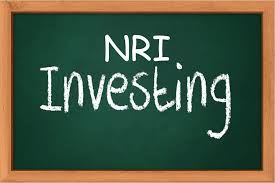The Dilemma of investing as an NRI

India has been a bright spot in the world economy and has been projected to grow on an average, at a staggering 7% for the next 15 years. According to a PwC report, India is slated to be the 2nd largest economy by 2050 only behind China. What this means is that by investing in the equity market, one could accrue the benefits of long term investing by virtue of the rapid growth in the economy. Investing has never been easy and must be done by way of advice from a professional, who takes into account ones risk tolerance, financial goals or objectives, tenor of investment etc. and then recommends the best possible investment.
We have often seen that some wealth management outfits and banks tend to waylay their clients to invest in products not best suited for them and hence, getting good advice remains a constant challenge for the industry. (See article: What’s wrong with Investment Distribution by Harsh Gahlaut) It is here that we see that NRIs face the biggest dilemma of investing in India. The lack of awareness of funds to invest in and the intricacies of the local market have often been big hurdles for NRIs. We would like to summarise factors that NRIs should keep in mind so that informed decisions can be taken while investing.
-
Understanding Regulations:
It is important to understand regulations while investing as an NRI. It begins with ensuring that your resident status in your KYC is updated as an NRI and investments are to be made by Non-Resident bank accounts only. This does involve some amount of paperwork initially, but is important to remain compliant to these regulatory guidelines. Compliance with FATCA regulations is also critical, as we have seen that non-compliance often leads to stoppage of investments or delays in processing of redemptions. Another important regulation is regarding NRIs based in US or Canada, and only specific fund houses accept applications from them.
-
Taxation:
As an NRI investor if the country that one resides in has a Double Taxation Avoidance Treaty (DTAA) with India, you would not have to pay double taxation in India and the country you resides in. The principle of this treaty is that you would not need to pay tax on the same income twice. For example: If the tax on Capital Gains is paid in India, you would not need to pay taxes on the same income elsewhere provided a DTAA has been signed. Currently, India has DTAA with more than 85 countries and covers most of major economies in the world.
Tax on Capital Gains on Mutual Funds remains the same for Resident and Non Resident Indians. The only difference lies in the fact that for NRIs, tax is deducted at source by the AMC and deposited with the government. The taxation for Mutual Funds is as under:
|
|
Tax Rate |
|
|
Category |
Short Term |
Long Term |
|
Equity |
15% |
10% on Long Term Capital gains exceeding 1 lac |
|
Debt |
30% |
20% with indexation |
-
Unbiased Advice:
A big deterrent for NRIs to get unbiased advice is the fact that their stay in the country is for a limited period and investment decisions are taken based on paucity of time rather than the quality of advice. A visit to your bank for updating information in your NRO account would often culminate into buying of an insurance product positioned by your relationship manager. A lot of wrong investment choices are driven by recommendations that come from someone who does not have a conflict free approach towards advising. These are traps that NRIs must avoid, as investments that do not suit your need or objective often turn out to be the ones that are least profitable.
-
Use of Technology:
Technology needs to be a huge enabler in achieving ones investment objectives. A lot of companies invest heavily in their electronic interface to ensure that clients are able to view their investments real time and are provided with transactional ease. This remains a standard offering on most investment platforms, however, technology needs to be used better to provide superior and customized investment solutions to clients. Technology should be able to aid the advisor to provide conflict free, timely and productive advice to clients. As an NRI, when one sits far away from India, the investment advisor should be able to communicate regularly by providing sound advice on portfolios. If technology does not empower your advisor, he would not be able to provide the best possible advice at the time it is needed most.
-
You and your Financial Advisor:
Investment success is a result of the team that an investor forms with his financial advisor. The importance of advice can never be undermined, but it is the team effort of you and your advisor that ensures that your goals are achieved. While planning your financial life, the advisor plays a pivotal role and hence, it is important to choose your advisor carefully. The advisor will be the one who will guide you through tough market situations, and help you not fall prey to ‘Greed’ and ‘Fear’ – the emotions that usually drive our investment decisions. Some aspects to keep in mind choosing the right advisor:
- Expertise in Financial Planning: Experience of promoters and the team in the financial services domain and the level of expertise that they bring along with them
- Basic ethos and principles of the firm you are dealing with. This can be verified by the online reputation and client feedback in the online space
- Investment recommendation should not be product led but through a customized Financial Plan.
- Technology: The deployment of technology should not just be limited to the front end but also should be on the back end to enable the advisor to provide a superior client experience
- Geographical Coverage: The advisor need not be limited by geography and technology should aid the advisor to engage with clients seamlessly in any part of the world
While investing as an NRI, basic research needs to be done and help must be sought from a professional person or entity. It is important to have basic checks in place to understand that you have aligned yourself with right advisor. As they say investing is a journey and your financial advisor is the guide that helps you reach your destination!
Your Investing Experts
Relevant Articles
Beginner Investing Guide: How to Start Investing the Right Way
Investing for beginners can feel both exciting and overwhelming. With constant news about markets, social media opinions, and stories of quick gains, first-time investors often struggle to separate what truly matters from what is simply noise.
How to Save More From Everyday Expenses and Invest More Consistently
Spending smarter, timing purchases better, and being intentional with recurring expenses can create a steady surplus that can be channelled into long-term investments.
Rupee Falling? How to Protect and Grow Your Investments
When the rupee weakens, it often creates anxiety for investors. But currency depreciation is not an anomaly; it is a recurring phase in every long-term economic cycle. The real question is not whether the rupee will fall, but how investors should respond to it without derailing their long-term financial goals.
.png)


